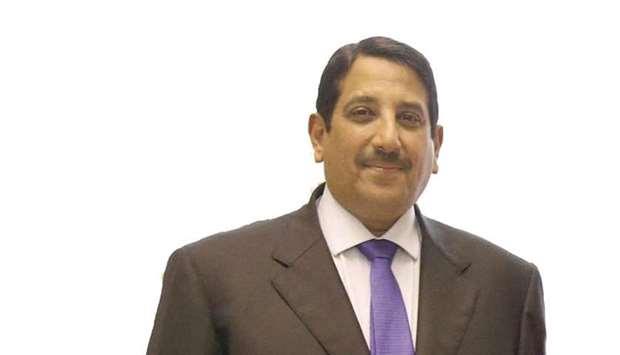
Qatar fighting terrorism to build world peace: envoy
This came in a lecture presented by Qatar's ambassador Italy Abdulaziz bin Ahmed al-Malki on Thursday under the title: "Gulf crisis: the Qatari perspective " hosted by the Sapienza University of Rome.
The ambassador said: "The State of Qatar will continue to fight terrorism and support its security fighters, and stresses the need to fight it intellectually as well. Qatar also contributes to draining its sources of funding by educating 10mn children around the world so as not to fall prey to ignorance and extremist ideas."
Al-Maliki said: "We in the State of Qatar, along with our belief in the need to abide by international laws and conventions and the imperative of working with the international community in the fight against terrorism, in order to build world peace, we also believe that building world peace is inseparable from its internal society, by creating a healthy social environment which is a safety valve from extremism and terrorist ideas."
Qatar, since the 1990s, has maintained strategic plans to modernise local legislation, adopt a policy of openness and freedom of the media, consolidate the values of acceptance of the other, respect for multiculturalism and religious diversity, open houses of worship to communities residing in its territory as building a knowledge society, the ambassador underlined.
He noted that Qatar is carrying out these efforts continuously and expanding in order to build generations to keep up with human values and recovery from the ideas of extremism and terrorism.
On siege imposed on Qatar since June 5, al-Malki, pointed out that the countries that imposed the unjust siege are interfering in the State's internal affairs by pressuring its citizens on food, medicine as well as separation of families and relatives in order to change their political position, to destabilise a sovereign State. "Is this not a definition of terrorism in itself," he asked.
He said: "This illegal blockade was not confined to the economic aspect and the violation of the WTO agreement and the Chicago Civil Aviation Agreement, but rather to the violation of the human rights charters by arbitrary measures that caused harm to thousands of GCC nationals and residents on their territories, socially, economically and religiously, where it violated the most basic human rights to work, education and mobility, and using private ownership.
Al-Maliki stressed that the siege countries are also interfering in the internal affairs of many countries and accusing all those who oppose them from the inside and outside of terrorism, thus harming the war on terrorism while at the same time opposing reform and supporting the tyrannical regimes in our region, where terrorists come out from their prisons.
Ambassador al-Malki said that Qatar currently manages its life, economy and development plans and communicates with the outside world successfully thanks to the presence of sea and air routes over which the siege countries have no control.
He added: "The siege was imposed suddenly and without warning, which led the Qataris to consider it a kind of treachery, especially by sisterly neighbouring countries, followed by launching escalated false propaganda campaign of incitement that violated all values, ethics, traditions and truth with a series of lies, with wishes that this fierce campaign of the siege would have a cumulative impact on the economy and society in Qatar, but it failed to have a direct impact."
He said that those who hacked Qatar News Agency (QNA) had committed an attack on a sovereign country.
This outrageous act has prompted renewed international questions about digital security and the prevention of piracy and cyber-hacking.
Ambassador al-Maliki said: "We have not been surprised by the imposition of the blockade alone, many countries were surprised with doubts about siege motives and reasons.
He said siege countries failed to give any evidence of their allegations and slander against the State of Qatar as it does not exist at all.
He affirmed that Qatar refused to comply with the dictates of pressure and siege as this will not satisfy the people of Qatar.
He stressed that Qatar has taken an open attitude to the dialogue without dictates and expressed its readiness to resolve the differences through a settlement based on joint commitments, and that the solution is within the Gulf House and through supporting the Kuwaiti mediation by sitting at the dialogue table in accordance with the principles of preserving sovereignty, non-interference in internal affairs, and putting solutions in the form of collective obligations for all parties, without dictates.
On relations between Qatar and Italy, the ambassador said that the volume of trade exchange between the two countries amounts to about 3bn euros, except for official investments between the two countries in the energy and military sectors.

Legal Disclaimer:
MENAFN provides the
information “as is” without warranty of any kind. We do not accept
any responsibility or liability for the accuracy, content, images,
videos, licenses, completeness, legality, or reliability of the information
contained in this article. If you have any complaints or copyright
issues related to this article, kindly contact the provider above.


















Comments
No comment